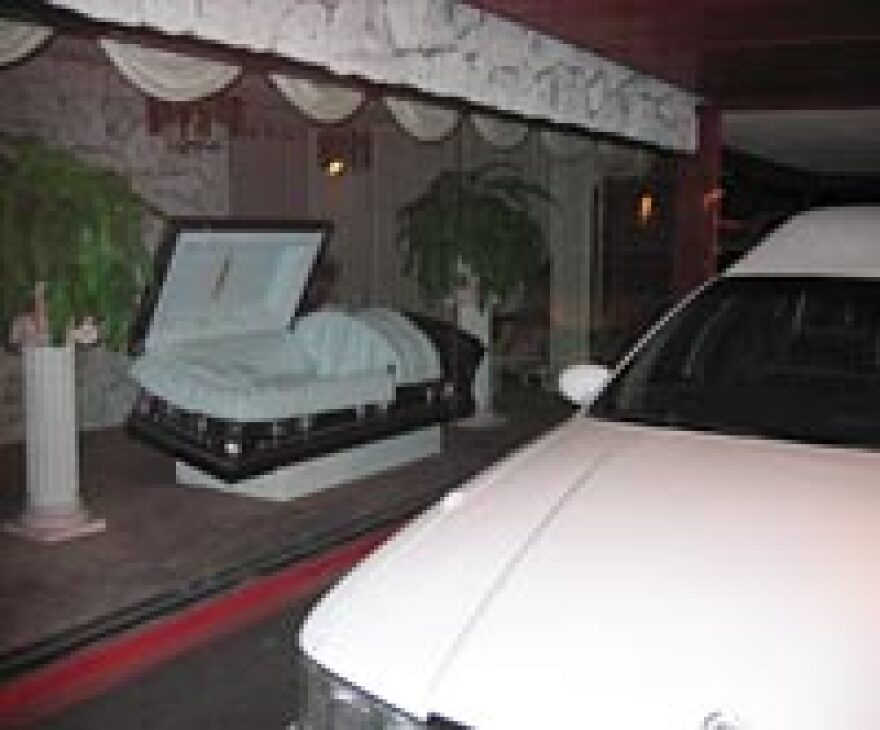



Compton is not a big city -- just 10 square miles perched on the southeast edge of Los Angeles. But it's home to some 57 active gangs, and in 2005 the city's murder rate jumped by more than 70 percent. The oldest victim was a 61-year-old man, the youngest an unborn fetus -- and investigators say almost all the killings were gang-related.
There are many reasons gang life is so entrenched in Compton, but even hardened law enforcement officials are wondering why the level of violence spiked last year. A few things stick out: a large number of hard-core gang members getting out of prison after serving 10- to 15-year sentences, and much more racial tension between Compton's black and Latino gangs, reflected in race riots in the Los Angeles County jail system.
Some residents are also wondering whether the L.A. County Sheriff's Department is doing a good enough job policing the city. Capt. Mike Ford, who runs the department's Gang Unit, admits he's frustrated. "It's an affront to us, it makes us wonder what's going on, "he says. "Are we doing our job, or are we not doing our job?"
Compton once had its own police department, but it was disbanded in 2001 because the Sheriff's Department supposedly could do the job more cheaply.
But that's part of the problem -- some former Compton Police Department members say Sherrif's Department personnel don't know enough about the gang scene in Compton, because they get rotated all over the county. Intelligence is essential in combatting gangs, and deputies simply do not know individual gang members enough to be effective.
Each city block belongs to a different crew -- Tortilla Flats, Treetop Piru, Nutty Block, the Palmer Bloc Crips... The biggest problem, says Compton paramedic Mike Baca, is jobs.
"As much money as they're making selling weed or crack, they'll take that job that pays them $6.75 an hour -- believe it or not -- because they don't have to look over their back," he says.
But other gang members, like Alex Vasquez of the Compton Varrio Tres, doubts he will ever escape the neighborhood alive. "Somebody's gonna gun me down, maybe for something I did a while back," he says. "If it's gonna happen, it's gonna happen -- especially here in Compton."
The rap group N.W.A.'s 1988 hit "Straight Outta Compton" transformed the city from a poor Los Angeles suburb to a poor and notorious Los Angeles suburb.
Eric "Eazy-E" Wright used profits from selling crack to start the group. He died from complications from AIDS back in 1995 -- but his son, Eric "Lil Eazy E" Wright, is carrying on the tradition.
"Lil Eazy-E" grew up in the same Compton house as his father, joined the same Crips gang and even makes gangster rap like his father did. His forthcoming album is entitled The Prince of Compton.
But there are also normal people living their lives and raising their families here. City Manager Barbara Kilroy and her husband raised five children in the city, and she says people in Compton are like people everywhere. The problem is one of perception.
"It's very aggravating," she says. "It is certainly extremely uncomfortable to sit in a meeting and to be told that Compton is not suitable for some activities."
Jonathan Strickland is the face of the "other" Compton -- the one that doesn't get rapped about. The teenager is a star student at Tomorrow's Aeronautical Museum, a free after-school program based at the Compton Airport. Students earn credit by doing community service, and cash it in for flight time and lessons.
Copyright 2022 NPR. To see more, visit https://www.npr.org.


